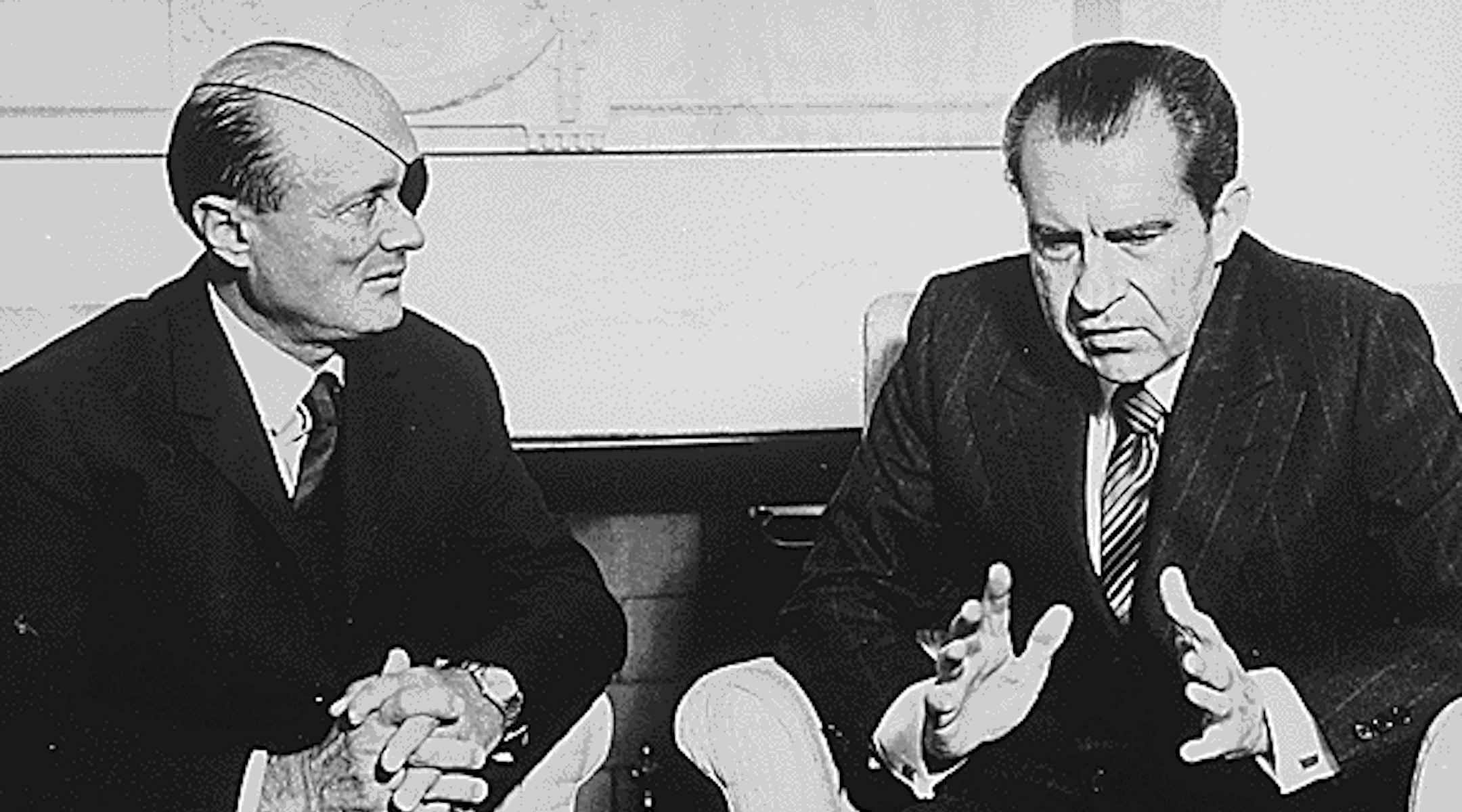Defense Minister Moshe Dayan said yesterday that February will be a crucial month for Israel, mainly because President Richard M. Nixon will announce his decision on Israel’s request for additional American arms and economic aid. If the decision is negative, it will be had, but if it is positive, even in part, it will have wide-ranging political and military implications, Gen. Dayan said.
The Defense Minister spoke to an audience of students at Beersheba University and answered their questions. He said the United States remains the only country from which Israel can expect both arms and support in the political arena. “I hope and believe that this friendship will remain firm in spite of differences of opinion over borders, Jerusalem and the refugee question,” Gen. Dayan said. He observed that Israel and the United States have much in common, including democratic government, the influential American-Jewish community and their diplomatic position in the world.
Gen. Dayan was sharply critical of Great Britain. He said that Israel contributed significantly to the improvement of Britain’s prestigious Chieftain tank which is now apparently to be sold to Libya, a declared enemy of the Jewish State, but not to Israel. According to Gen. Dayan, British officers tested a number of Chieftain tanks in the Negev area to determine how they would perform in a hot, dry and dusty terrain. He said Israeli armoured corps experts proposed a number of modifications to improve the tanks which the British eagerly accepted. There was an understanding that the Chieftains would be sold to Israel, Gen. Dayan said. He said Britain’s denial now that there ever was such a plan is “inconceivable.”

Help ensure Jewish news remains accessible to all. Your donation to the Jewish Telegraphic Agency powers the trusted journalism that has connected Jewish communities worldwide for more than 100 years. With your help, JTA can continue to deliver vital news and insights. Donate today.
The Archive of the Jewish Telegraphic Agency includes articles published from 1923 to 2008. Archive stories reflect the journalistic standards and practices of the time they were published.




